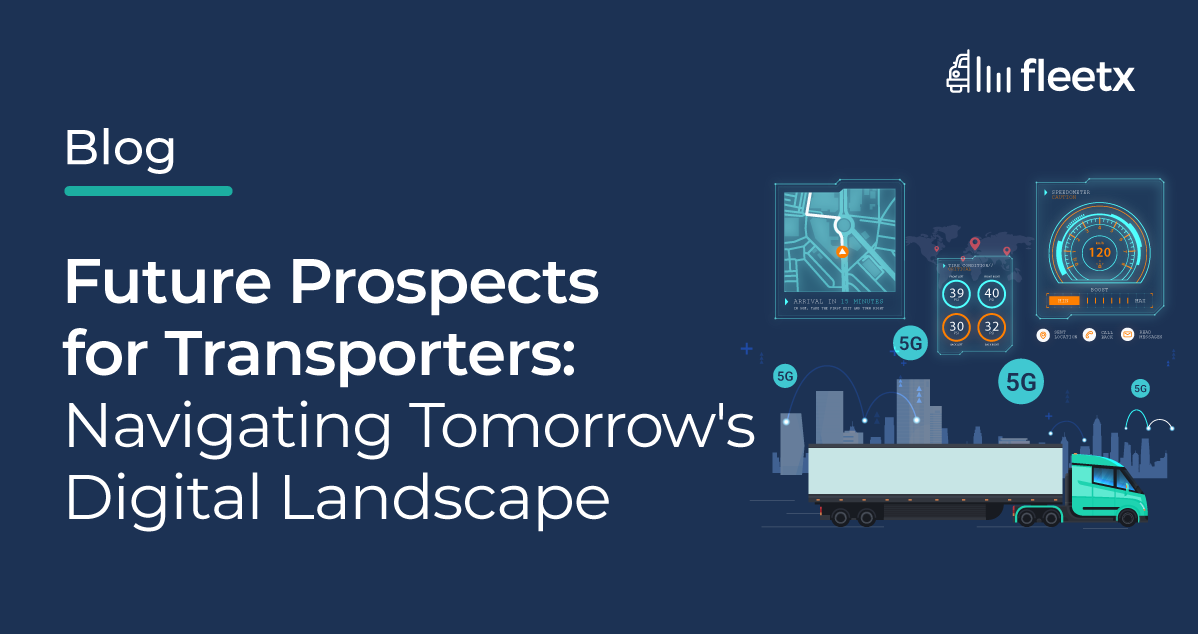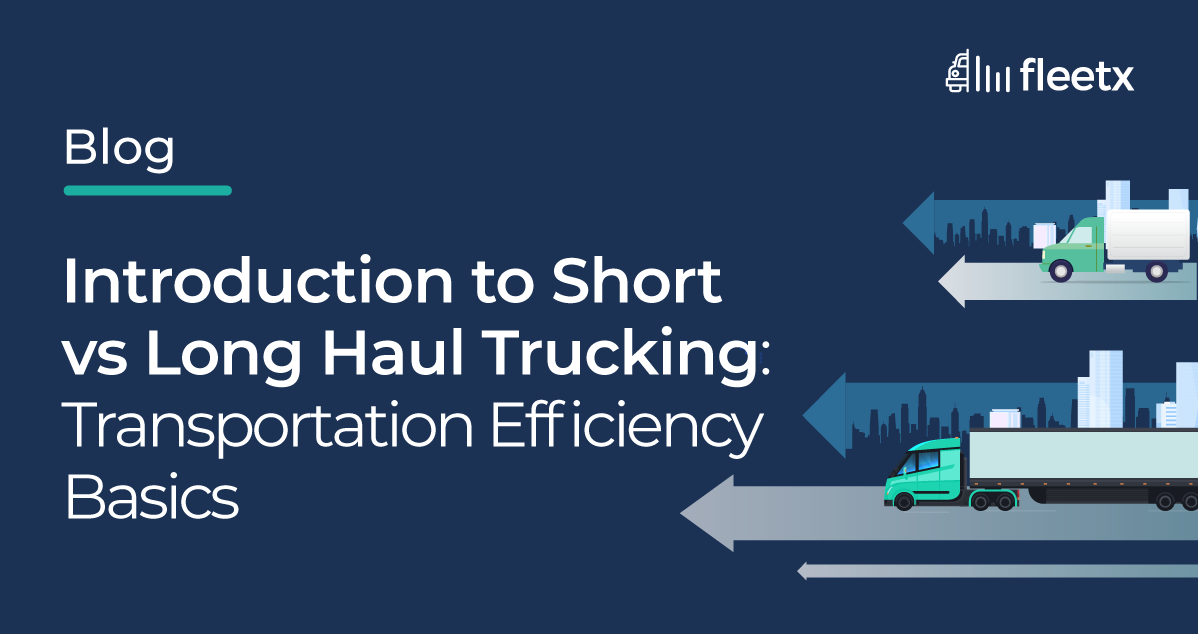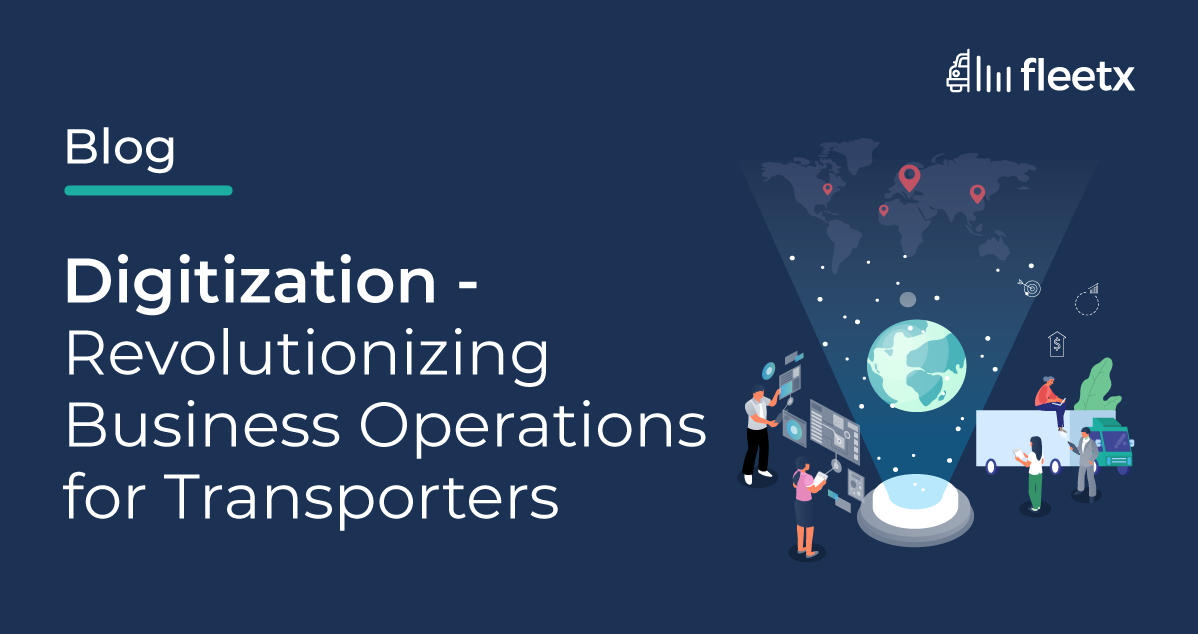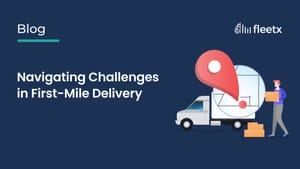
As the world undergoes a digital transformation on several fronts, transporters are starting to recognize that technology is not just a fleeting trend; it's a fundamental shift that's here to stay. The rapid pace of technological advancements has fundamentally altered how businesses operate and how consumers interact with services. The transportation sector is no exception.
Tech is Now a Necessity
Technological solutions not only streamline existing processes but also open doors to entirely new possibilities that can revolutionize the industry. In a world increasingly driven by connectivity and data, harnessing technology isn't just a choice – it's an enabler of growth and evolution.
In India, The rise of e-commerce, consumer driven expectations and the development of communication technology in the country have set new standards for the logistics industry to meet. Customers and clients want accountability and information on the whereabouts of their shipments. More importantly, fleet managers want to be proactive in their operations and use data to drive better decision making.
It is not hard to understand why; most of India’s logistic landscape is unorganised. A large majority of fleet owners operate on a small scale, with 4 or 5 vehicles. As a result, operations are fragmented and digital solutions are often applied in isolation.
However, the main challenge remains: why would these small scale owners invest the time and resources to overhaul their system of operations and invest in digital infrastructure? Furthermore, what does that mean for the future of logistics operations in the country?
In this companion piece, we explore what the journey to an integrated and data-driven future looks like, and share some insights from our experience of facilitating digital transitions for our clients over the years.
Digitization is the Government’s Priority
Launched in 2015, the Digital India initiative aims to transform India into a digitally empowered society and knowledge economy. The initiative includes various programs and projects focused on improving digital infrastructure, increasing digital literacy, and promoting digital services across sectors, including logistics.
Here are some of the initiatives that the Government Of India has supported in recent years, to streamline the Indian logistics Industry:
- e-Bill of Lading: The e-BL initiative aims to digitize and streamline the documentation process in shipping, reducing paperwork, increasing efficiency, and enhancing transparency.
- National Logistics Policy: In 2022, the government introduced the National Logistics Policy that aims to create an integrated and efficient logistics ecosystem in the country, on par with other global leaders.
- GST Implementation: The implementation of the GST system has brought about a significant digital transformation in the taxation and supply chain processes.
- Sagarmala Project: The Sagarmala initiative focuses on modernizing India's ports and promoting port-led development.
- Bharatmala Project: The Bharatmala project aims to improve road infrastructure across the country.
By supporting the development of digital platforms, encouraging the use of electronic documentation, and investing in the expansion of digital connectivity, the Indian government is propelling the logistics industry toward a future where technology is not just a tool but a transformative enabler of growth.
What Will The Future Bring?
As the transportation industry continues to evolve, the future prospects for digitization are promising, and exciting! Organisations and people around the world are experimenting with available technology to create solutions to industry-specific challenges, which can further revolutionize the logistics industry. Here are a few:
- Blockchain and Smart Contracts: Blockchain technology offers a secure and transparent way to record and verify transactions. In the transportation industry, this technology can be harnessed to create tamper-proof records of shipments, contracts, and payments.
Smart contracts, built on blockchain, can automate processes, ensuring that conditions are met before triggering the next step. This has the potential to streamline complex logistics operations, eliminate disputes, and foster trust among all stakeholders.
- Sustainable Operations: The push for environmental sustainability has reached the transportation sector. Digitization plays a pivotal role in this effort by enabling transporters to monitor and optimize fuel consumption, emissions, and resource utilization.
Going forward, we can expect increased integration of electric and alternative fuel vehicles into fleets, driven by a combination of environmental concerns and cost savings. Digitization will be key in managing these new vehicle technologies for maximum efficiency.
- AR/VR for training opportunities: AR and VR technologies hold tremendous potential for training drivers and enhancing operations. Transporters can leverage AR to provide real-time navigation guidance, reduce driver distractions, and enhance safety. VR can be used for immersive training simulations, allowing drivers to experience various scenarios without real-world risks. These technologies not only improve driver skills but also contribute to overall fleet safety and efficiency.
- Cloud integration and big analytics: Cloud integration and big data analytics will continue to play a pivotal role in the transportation industry's digitization journey. With the ability to store and process vast amounts of data, transporters can gain deeper insights into their operations, customer behavior, and market trends.
This data-driven approach empowers them to make informed decisions and adapt quickly to changing demands, ensuring sustained growth and competitiveness.
Looking Forward
Over the course of Fleetx’ journey to empower clients with smart solutions for their businesses, one of the key takeaways remains that these products work best when integrated, and on a system-level, rather than as patchwork solutions. As the industry adapts to changing norms and standards, as can be seen in the shift towards the digital among transporters of all sizes, there has been a greater demand for solutions that address the several challenges that plague supply chain management.
The future prospects for digitization in the transportation industry are both exciting and limitless. The key to seizing these opportunities lies in the readiness to embrace innovation and adapt to the ever-evolving digital landscape. Transporters who remain committed to the journey of digitization are poised to not only navigate the challenges of the industry but also to lead the charge toward a smarter, safer, and more sustainable future.







